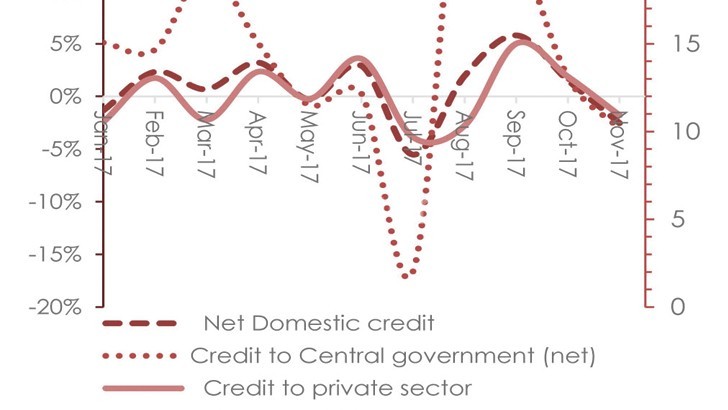Rate cut fails to boost credit growth
Despite the Reserve Bank of Malawi (RBM) reducing the policy rate to 16 percent, the lowest in seven years, credit growth for the private sector remains subdued, the World Bank has said.
World Bank senior country economist Patrick Hettinger said in an interview on Friday the central bank has maintained a tight monetary stance, continues to monitor and mop up excess liquidity to keep the interbank rate (IBR) close to the policy rate to ensure that inflation remains under control.
He said low level of access to finance through the banking sector remains a significant constraint to private sector performance.
Said Hettinger: “Delayed court decisions have contributed to high perceptions of risk, thus constraining access to credit from the banking system. Among other challenges, financial institutions have limited trust in the efficiency and impartiality of local courts when dealing with commercial disputes.”
RBM last reduced the policy rate or bank rate—the rate at which commercial banks borrow from the central bank—in March this year by two percentage points to 16 percent from 18 percent thanks to declining inflation.
Inflation is currently at 9.7 percent as of April 2018, according to the National Statistical Office (NSO).
As a result of the policy rate cut, commercial banks reduced their nominal base lending rates from 33.6 percent to 24.8 percent
between January 2017 and January 2018.
However, data contained in the May 2018 Malawi Economic Monitor show that despite the drop in nominal rates, real base lending rates remained elevated at more than 15 percent as of January, affecting private sector lending.
During this 12-month period [January 2017 to January 2018], credit to the private sector grew by a paltry 0.3 percent while government credit increased by 27.5 percent.
Malawi Confederation of Chambers of Commerce and Industry (MCCCI) chief executive officer Chancellor Kaferapanjira said the development has implications on the gains made on macroeconomic stability and has the potential to crowd out private sector.
He said: “Of concern to the private sector is domestic borrowing which the budget statement indicated is going to rise by K176 billion due to diminished foreign borrowing. This is a worrying trend for the private sector considering that Malawi is already above the 20 percent threshold for domestic borrowing.
“This is likely to influence an upsurge in the interest rates and crowd out private sector capital. The money that would be borrowed by government if also not used for productive purposes will further push up inflation.”
Earlier, RBM Governor Dalitso Kabambe said the monetary policy stance during the first half of 2018 will focus on entrenching disinflation and attaining the targeted five percent inflation in the medium- term.
In the next fiscal year [2018/19], Treasury plans to borrow K176 billion domestically.
Treasury said it would increase domestic borrowing to finance the expected budget deficit expected at K242 billion or 4.5 percent of gross domestic product.






